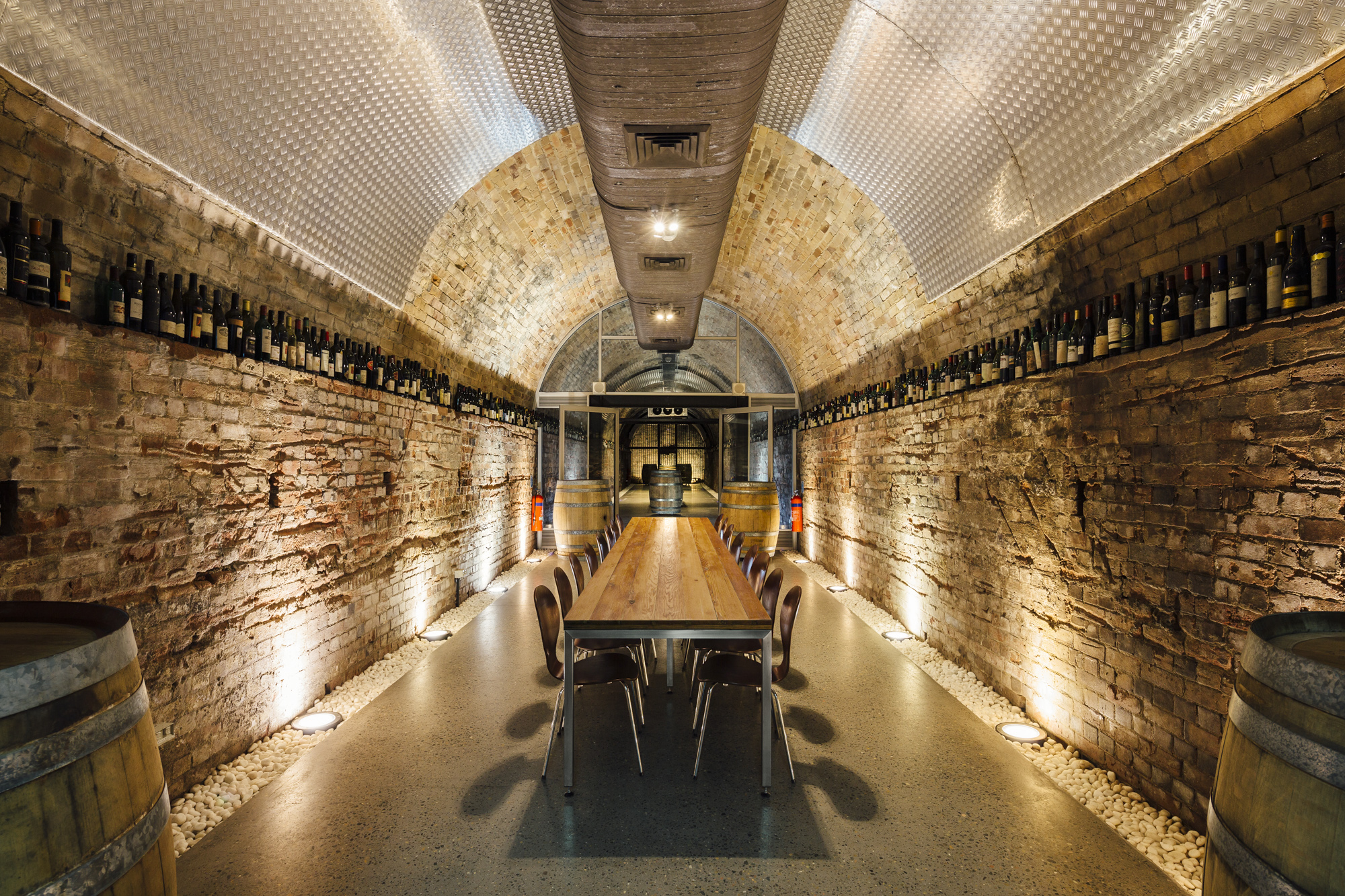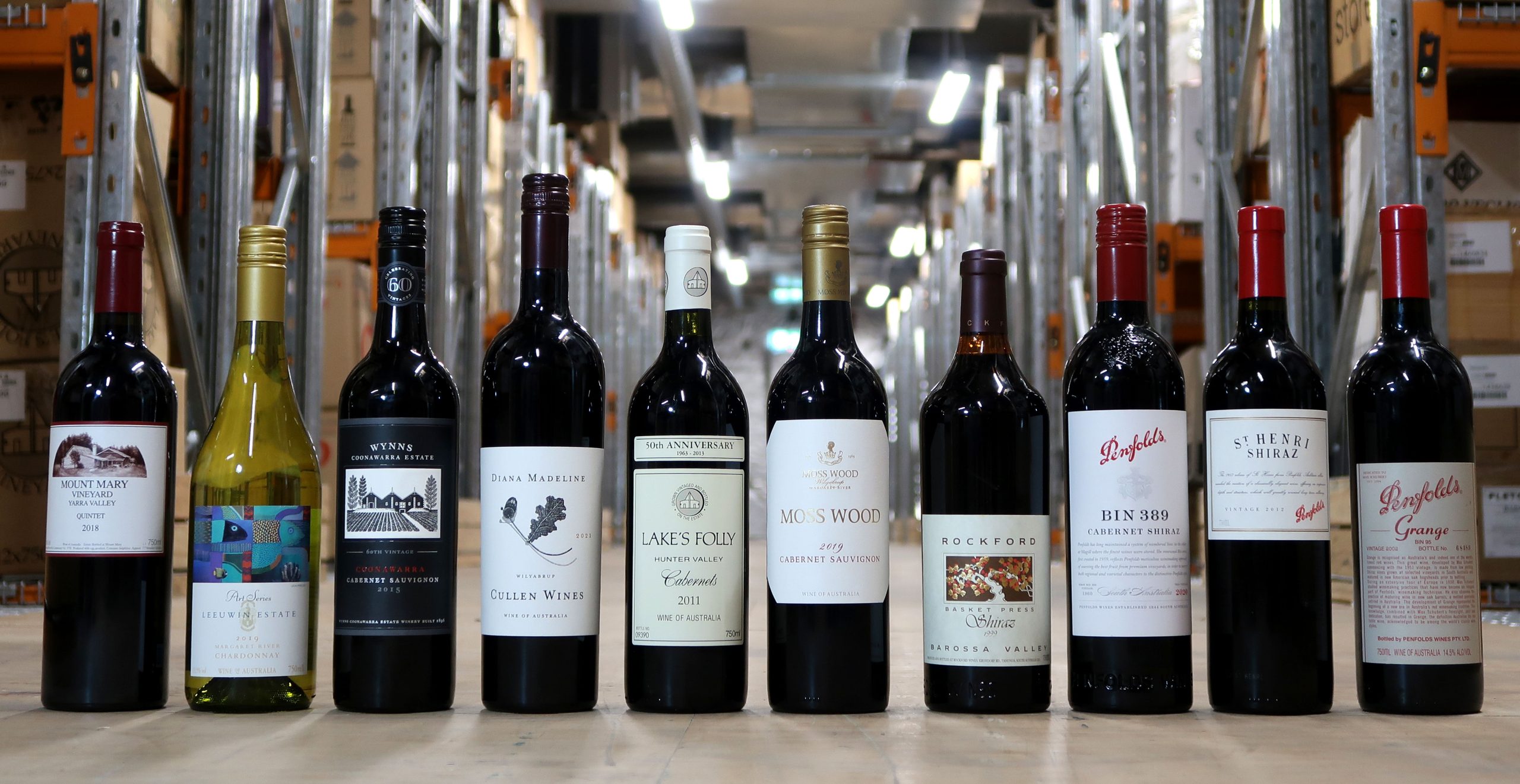What’s everyone drinking? Australia’s most popular wines revealed
Want to impress your guests this New Year’s Eve? Pick a top 50 wine so that the best wine is the one you share with friends
Australians love a good drop, especially at this time of year — and especially when it’s home grown. According to government statutory corporation, Wine Australia, there are more than 2150 wineries across 65 winegrowing regions around the country, representing about 6000 grapegrowers.
Just in time for the new year, wine storage provider, Wine Ark, has released its most collected wines of 2023.
Shiraz was the most collected variety, followed by Chardonnay, but for single wines, Penfolds Grange topped the list.
Keeper of Bottles at Wine Ark, John Cuff, said the Penfolds Grange was a hard wine to topple from the top spot.
“This is the second edition in a row that sees Penfolds Grange be the most collected wine in Australia, which is also one of the country’s most expensive wines, again emphasising the importance of this iconic wine to Australian wine collectors,” he said.
Penfolds Grange also represented reliability for collectors, he said, both in terms of drinkability — and investment.
“In relation to investment, I would say that historically Penfolds wines have held their value very well,” Mr Cuff said. “When they approach their drinking window, if you were to look to exit the wine, then yes, you could make some money on it.”
While many of the wines in the top 10 such as Wynns Coonawarra Estate and the Leeuwin Estate Art Series would be familiar to wine lovers, Mr Cuff said lesser known cooler climate wines including Mount Mary, Tolpuddle and Crawford River were gaining ground. The Tolpuddle Vineyard Chardonnay gained 66 places to break into the top 50 while Crawford River Riesling rose 59 places.

Mr Cuff said while warmer climate wines would remain popular, especially among those starting their wine collecting journey, more people are beginning to appreciate the merits of cooler climate wines.
“When people start their collecting journey traditionally they are either guided towards, or believe they should start with, the more popular regions such as the Barossa valley,” he said. “We all know that wines from the Barossa are brilliant and provide people with a glass of forward, flavoursome, rich wine that appeals to new wine buyers and collectors alike.
“Wines from cooler climates have a lovely angular acid line, elegant tannins and, traditionally, have lower alcohol than warmer climate wines. They also match our current food styles and climate very well.
“In saying that I do love a big steak and glass of heavy red!”
Given more than half of Australia’s wineries are based in South Australia, it’s perhaps no surprise to learn wines from the state are also the most popular with collectors. The Barossa Valley was the most popular by region, followed by the Hunter Valley in NSW.

For those looking to restock their cellar or start collecting in 2024, Mr Cuff’s advice is simple: collect what you enjoy drinking.
“There is no use buying Coonawarra Cabernet for an investment if you don’t like Cabernet,” he said. “Worse case, if you can’t sell it, you can drink it.”
His tips for good Australian tipples include Margaret River Cabernet and Chardonnay, Yarra Valley Cabernet, Tasmanian Chardonnay and Pinot Noir, single vineyard McLaren Vale Grenache and Shiraz from the “new” Barossa.
Here’s cheers.
This stylish family home combines a classic palette and finishes with a flexible floorplan
Just 55 minutes from Sydney, make this your creative getaway located in the majestic Hawkesbury region.
As Paris makes its final preparations for the Olympic games, its residents are busy with their own—packing their suitcases, confirming their reservations, and getting out of town.
Worried about the hordes of crowds and overall chaos the Olympics could bring, Parisians are fleeing the city in droves and inundating resort cities around the country. Hotels and holiday rentals in some of France’s most popular vacation destinations—from the French Riviera in the south to the beaches of Normandy in the north—say they are expecting massive crowds this year in advance of the Olympics. The games will run from July 26-Aug. 1.
“It’s already a major holiday season for us, and beyond that, we have the Olympics,” says Stéphane Personeni, general manager of the Lily of the Valley hotel in Saint Tropez. “People began booking early this year.”
Personeni’s hotel typically has no issues filling its rooms each summer—by May of each year, the luxury hotel typically finds itself completely booked out for the months of July and August. But this year, the 53-room hotel began filling up for summer reservations in February.
“We told our regular guests that everything—hotels, apartments, villas—are going to be hard to find this summer,” Personeni says. His neighbours around Saint Tropez say they’re similarly booked up.
As of March, the online marketplace Gens de Confiance (“Trusted People”), saw a 50% increase in reservations from Parisians seeking vacation rentals outside the capital during the Olympics.
Already, August is a popular vacation time for the French. With a minimum of five weeks of vacation mandated by law, many decide to take the entire month off, renting out villas in beachside destinations for longer periods.
But beyond the typical August travel, the Olympics are having a real impact, says Bertille Marchal, a spokesperson for Gens de Confiance.
“We’ve seen nearly three times more reservations for the dates of the Olympics than the following two weeks,” Marchal says. “The increase is definitely linked to the Olympic Games.”

Getty Images
According to the site, the most sought-out vacation destinations are Morbihan and Loire-Atlantique, a seaside region in the northwest; le Var, a coastal area within the southeast of France along the Côte d’Azur; and the island of Corsica in the Mediterranean.
Meanwhile, the Olympics haven’t necessarily been a boon to foreign tourism in the country. Many tourists who might have otherwise come to France are avoiding it this year in favour of other European capitals. In Paris, demand for stays at high-end hotels has collapsed, with bookings down 50% in July compared to last year, according to UMIH Prestige, which represents hotels charging at least €800 ($865) a night for rooms.
Earlier this year, high-end restaurants and concierges said the Olympics might even be an opportunity to score a hard-get-seat at the city’s fine dining.
In the Occitanie region in southwest France, the overall number of reservations this summer hasn’t changed much from last year, says Vincent Gare, president of the regional tourism committee there.
“But looking further at the numbers, we do see an increase in the clientele coming from the Paris region,” Gare told Le Figaro, noting that the increase in reservations has fallen directly on the dates of the Olympic games.
Michel Barré, a retiree living in Paris’s Le Marais neighbourhood, is one of those opting for the beach rather than the opening ceremony. In January, he booked a stay in Normandy for two weeks.
“Even though it’s a major European capital, Paris is still a small city—it’s a massive effort to host all of these events,” Barré says. “The Olympics are going to be a mess.”
More than anything, he just wants some calm after an event-filled summer in Paris, which just before the Olympics experienced the drama of a snap election called by Macron.
“It’s been a hectic summer here,” he says.

AFP via Getty Images
Parisians—Barré included—feel that the city, by over-catering to its tourists, is driving out many residents.
Parts of the Seine—usually one of the most popular summertime hangout spots —have been closed off for weeks as the city installs bleachers and Olympics signage. In certain neighbourhoods, residents will need to scan a QR code with police to access their own apartments. And from the Olympics to Sept. 8, Paris is nearly doubling the price of transit tickets from €2.15 to €4 per ride.
The city’s clear willingness to capitalise on its tourists has motivated some residents to do the same. In March, the number of active Airbnb listings in Paris reached an all-time high as hosts rushed to list their apartments. Listings grew 40% from the same time last year, according to the company.
With their regular clients taking off, Parisian restaurants and merchants are complaining that business is down.
“Are there any Parisians left in Paris?” Alaine Fontaine, president of the restaurant industry association, told the radio station Franceinfo on Sunday. “For the last three weeks, there haven’t been any here.”
Still, for all the talk of those leaving, there are plenty who have decided to stick around.
Jay Swanson, an American expat and YouTuber, can’t imagine leaving during the Olympics—he secured his tickets to see ping pong and volleyball last year. He’s also less concerned about the crowds and road closures than others, having just put together a series of videos explaining how to navigate Paris during the games.
“It’s been 100 years since the Games came to Paris; when else will we get a chance to host the world like this?” Swanson says. “So many Parisians are leaving and tourism is down, so not only will it be quiet but the only people left will be here for a party.”
This stylish family home combines a classic palette and finishes with a flexible floorplan
Just 55 minutes from Sydney, make this your creative getaway located in the majestic Hawkesbury region.


















